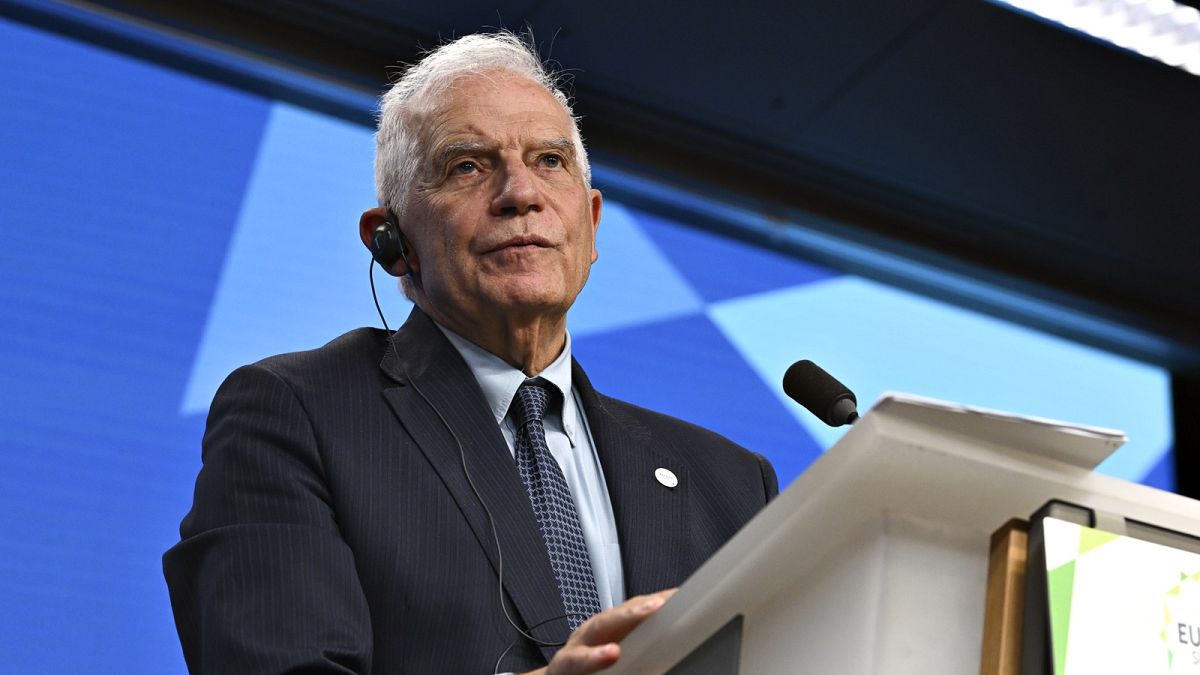Josep Borrell’s proposal, made in view of alleged human rights violations, is highly likely to be vetoed by member states.
Josep Borrell, the European Union’s foreign policy chief, has proposed to formally suspend political dialogue with Israel over the country’s alleged violations of human rights and international law in the Gaza Strip.
Borrell’s proposal was first raised during a meeting of ambassadors on Wednesday and will be officially submitted next Monday, when foreign affairs ministers meet in Brussels, an EU official and three diplomats with knowledge of the process told Euronews.
The suspension of political dialogue depends on unanimity among member states, and so the plan is almost certain to fail given sharp divisions over the Israel-Hamas war.
The majority of voices who took the floor during the meeting expressed a negative opinion, although not every envoy spoke up, the diplomats told Euronews. Germany, Austria, the Czech Republic, Hungary, Denmark, the Netherlands, Italy and Greece were among the taken-aback opposition.
“It came as a complete surprise and was immediately objected by a large group of member states,” one diplomat said. “This came completely out of nowhere.”
But suspension, in and of itself, might not be the real objective of Borrell, whose five-year term is nearing its end. What the foreign policy chief intends, an EU official suggested, is to compel capitals to unambiguously state where they stand on Israel’s controversial conduct.
“It is, first of all, a political signal that something in the relationship is wrong,” the official said, speaking on condition of anonymity. “At the same time, it would be a way to force Israel to finally explain and justify its actions.”
Borrell’s proposal is based on the EU-Israel Association Agreement, which contains legally binding provisions on human rights.
Early this year, Spain and Ireland penned a joint letter demanding an “urgent review” of the agreement in light of the spiralling humanitarian catastrophe that Israel’s military campaign has caused in the densely-populated Gaza Strip.
The Spanish-Irish move met with strong resistance from countries including Germany, Czechia, Austria and Hungary, considered among Israel’s staunchest backers in the bloc. The European Commission, led by Ursula von der Leyen, largely ignored it.
Borrell, whose thinking often aligns with Madrid, never forgot the joint demand. The High Representative has tried to convene an Association Council with Israel to discuss compliance with its EU agreement, but this has yet to take place.
Since the start of the Israel-Hamas war, over 1,700 Israelis and more than 43,000 Palestinians, including over 13,000 Palestinian children, have been reported as killed.
Israel has been repeatedly criticised for obstructing the passage of humanitarian aid and the work of UNRWA, the UN relief agency for Palestinian refugees which the government of Prime Minister Benjamin Netanyahu plans to ban.
“There’s nowhere safe in Gaza. Including the safe zones,” Scott Anderson, director of UNRWA affairs in Gaza, told Euronews in a recent interview.
“Unfortunately, all parties to the conflict are not respecting the sanctity of sites that should be safe for civilians, including hospitals and schools.”
This article has been updated with more information.

